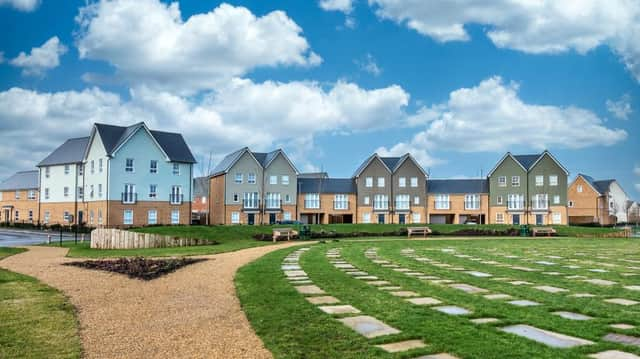Net Zero: Planning Bill contains ‘nothing to ensure’ new building will help UK reach carbon emissions target


The government’s new Planning Bill contains ‘nothing’ to ensure that new buildings will keep the UK in line with Net Zero emissions, the chair of the Climate Change Committee (CCC) has said.
Speaking before the Environmental Audit Committee’s evidence session on July 15, Lord Deben, chair of the CCC claimed that the lack of provisions in the Bill risks the UK falling short of Net Zero before 2050.
Advertisement
Hide AdAdvertisement
Hide AdWe want to hear from you: let us know what you think about this story and be part of the debate in our comments section below
At a glance: 5 key points
- Lord Deben spoke as a witness before the Environmental Audit committee on July 14 during a session focused on “sustainability in the built environment”.
- Lord Deben said he and the CCC have seen “nothing” in the Planning Bill, which will reform England’s planning system, which is in-keeping with emissions targets.
- This risks the UK as a whole failing to meet the target, said Lord Deben, as construction is a huge contributor to the country’s total emissions.
Advertisement
Hide AdAdvertisement
Hide Ad- He further added that the lack of robust green provisions in planning law means that local authorities are unable to make the right decisions when it comes to approving planning in their area, pointing to the Cumbria coal mine as one example.
- Other topics discussed in the session included the cost of retrofitting homes, the Future Homes Standard and enforcement of planning regulations.
What’s been said?
In the session, Lord Deben said: “We have the ridiculous thing of proposing a new planning law [in which] as far as we can understand there’s nothing which will ensure that we build in a way that adds up to Net Zero.
“If you just have a planning law of the kind we’ve been talking about, we just won’t reach Net Zero because the planning law is an essential part of the way in which the central government enables local authorities to make the right choices [on planning].”
Advertisement
Hide AdAdvertisement
Hide AdA spokesperson from the Ministry of Housing, Communities and Local Government (MHCLG) said: “These claims fundamentally misunderstand our much-needed planning reforms.
“All developments should take into account the impacts of climate change and responsibilities to the environment, as well as prioritise building on brownfield and urban land, so that we put green spaces, communities and environmental protection at the heart of the planning process.
“We are also ensuring new homes are producing less emissions and that new housing developments are leaving nature and biodiversity in an overall better state than before development.”
Background
The government has proposed sweeping changes to England’s planning system in the new Planning Bill, including altering rules around planning permission and reclassifying land into three new categories.
Advertisement
Hide AdAdvertisement
Hide AdCouncils in England would have to classify all land in their area as "protected", for "renewal", or for "growth" under new plans, with corresponding permissions for each.
The proposals have proved controversial, with critics saying that the Bill will sideline communities from having their say in development.
Some Tory MPs have also expressed concerns over the formula used to calculate housing targets in certain local areas.
Comment Guidelines
National World encourages reader discussion on our stories. User feedback, insights and back-and-forth exchanges add a rich layer of context to reporting. Please review our Community Guidelines before commenting.